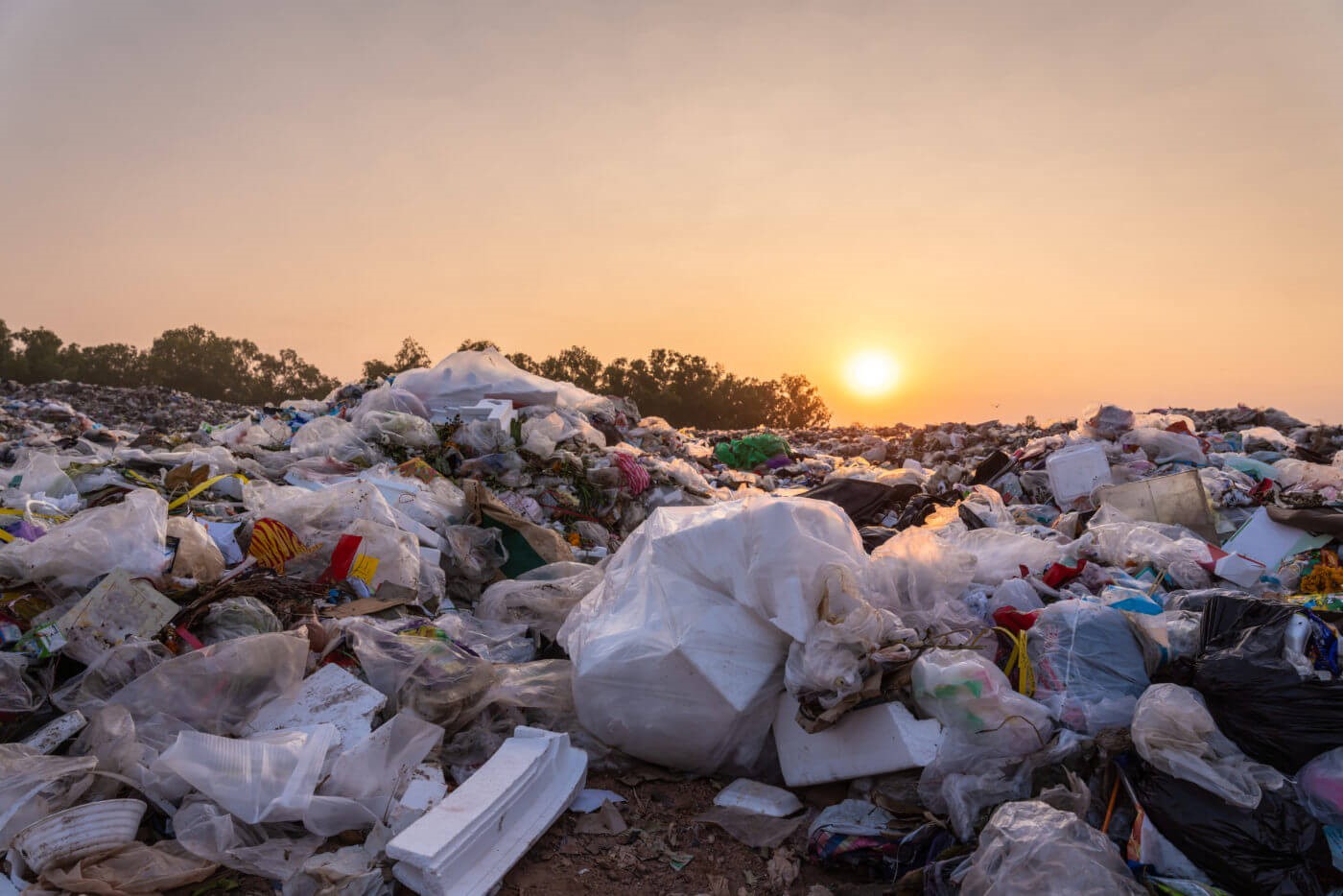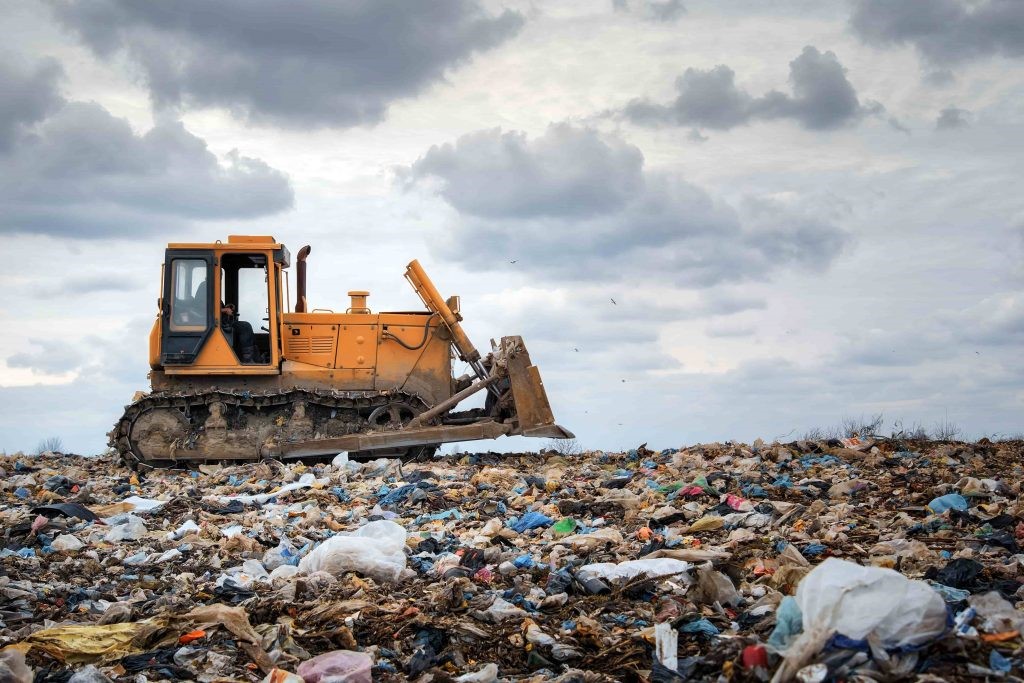
Climate change (CC) is a global problem that demands immediate action. While people usually associate this phenomenon with deforestation and emissions from fossil fuels, one important overlooked contributor is improper garbage disposal.
The unsystematic handling of trash poses tons of environmental challenges, from water and soil pollution to greenhouse gas emissions. It is vital to recognize the importance of proper garbage discarding in alleviating climate change and adopting sustainable waste management practices.
Minimizing greenhouse gas emissions
Proper garbage management plays an essential role in minimizing greenhouse gas emissions, which are huge contributors to climate change. When trash is discarded in landfills without the right management, it decomposes and releases methane gas – a potent greenhouse gas.
By implementing efficient and effective garbage management systems like waste-to-energy conversion, composting, and recycling, people can significantly reduce methane emissions. These strategies not only reduce environmental impact but also promote the circular economy by converting trash into valuable natural resources.
To find out more about green gas emissions, click here for details.
Curbing habitat destruction and deforestation
The consequences of improper removal of trash extend beyond landfills. Illegal dumping, as well as improper waste removal, usually leads to habitat destruction and deforestation. When waste is irresponsibly discarded in natural habitats and forests, it contaminates the water and soil sources, thus disrupting fragile ecosystems.
This ecological imbalance can further accelerate climate change by minimizing the earth’s natural capacity to absorb carbon dioxide. Proper trash management, along with sustainable recycling practices, can help alleviate the pressure on our forests and preserve important habitats.
Preventing water and soil pollution
Improperly disposed of trash can leach harmful chemicals into the soil, as well as contaminate groundwater, posing serious risks to human health and ecosystems. Toxic substances from batteries, electronic waste, and plastics can find their way into the soil, compromising the soil’s fertility and disrupting the delicate balance of ecosystems.
Moreover, pollutants eventually seep into bodies of water, leading to water pollution, damaging aquatic life, and further impacting the climate. By promoting responsible trash removal methods, people can safeguard the water and soil sources, as well as protect the delicate ecological equilibrium.
Encouraging a shift toward a circular economy
Disposing of trash the right way is intrinsically linked to the concept of a circular economy – an economic system designed to minimize waste and maximize natural resources efficiently and effectively. By adopting sustainable junk management practices like composting and recycling, people contribute to the creation of a circular economy.
Recycling minimizes the need for extracting raw materials, reduces greenhouse gas emissions associated with manufacturing processes, and conserves a lot of energy. It not only alleviates climate change, but it also presents economic opportunities by creating green jobs as well as fostering innovations.
Promoting collective and individual responsibilities
Addressing climate change is a collective responsibility that needs the participation of people, businesses, government agencies, and businesses alike. Proper junk management empowers people to take responsibility for their waste and contribute to sustainable practices.
By adopting simple measures like reusing, reducing, and recycling garbage generation, people can all make a tangible difference in combating climate change. Awareness campaigns and education should be conducted to educate communities about the importance of proper garbage disposal and its implications for mother earth.
What is circular economy? Visit https://www.europarl.europa.eu/news/en/headlines/economy/20151201STO05603/circular-economy-definition-importance-and-benefits to find out more.

The importance of addressing climate change
Climate change has emerged as one of the most critical challenges of our generation, threatening the very fabric of mother earth and all life that lives in it. It is no longer a distant concern, but a reality that demands immediate attention.
The importance of addressing this problem can’t be overstated, as its impact reaches far and wide, affecting human health, future generations, economies, and ecosystems. We will now highlight the significance of climate change and emphasize the urgent need to do something about it.
Environmental impact
This phenomenon is altering mother earth’s delicate balance, leading to rising temps, changing weather patterns, as well as increased frequency and intensity of extreme events like floods, droughts, and hurricanes. These weather alterations disrupt ecosystems, threaten the survival of different species, and endanger biodiversity.
The loss of coral reefs, deforestation, and melting glaciers are all direct consequences of weather alterations, posing significant environmental risks. Preserving the earth’s natural resources and guarding ecosystems are very important for maintaining the earth’s ecological stability.
Humanitarian consequences
This thing directly affects human populations, especially those in vulnerable areas. Rising sea levels threaten coastal communities, as well as low-lying islands, displacing millions of individuals and causing unprecedented human migration.
Extreme weather events, as well as changing precipitation patterns jeopardize food security, leading to water scarcity, crop failures, and increased malnutrition. Moreover, air pollution and heat waves contribute to health issues, including heat-related illnesses and respiratory diseases. Climate change aggravates existing social inequalities, exacerbating poverty and disproportionately impacting marginalized communities.
Economic implications
The economic implications of this phenomenon are far-reaching. The damage caused by extreme weather events like floods and hurricanes results in massive infrastructure losses, a burden on public finances, and increased insurance costs.
Changes in rainfall patterns and temperature affect agricultural productivity, which can lead to reduced crop yields and increased food prices. The tourism industry heavily relies on natural resources and scenic landscapes, which is why it suffers from the degradation of ecosystems. Mitigating global warming and transitioning to sustainable practices presents economic opportunities, spurring innovations, technological advancements, and job creation.
Future generations
The significance of this phenomenon lies not only in its immediate impact but also in its implications for future generations. Failing to act immediately will also burden future generations with a destabilized climate, diminished quality of life, and severe environmental degradation. It is people’s moral responsibility to preserve mother earth for future generations by proper junk disposal, making sure they have easy access to fresh water, clean air, and a sustainable environment.
Collective action and solutions
Addressing CC requires a collective effort involving individuals, communities, businesses, and government agencies. International cooperation is very important to implement and strengthen agreements, promote clean energy transitions, as well as to minimize greenhouse gas emissions.
Investing in renewable energy, adopting sustainable practices, and enhancing energy efficiency are vital steps in mitigating CC. Education, raising awareness, as well as empowering people to make eco-friendly choices can have a huge impact on minimizing the carbon footprint. CC is a global issue that demands urgent action.
Its consequences have many aspects that can affect the well-being of future generations, human health, economies, and the environment. By recognizing the importance of CC and embracing sustainable solutions, people can work towards a prosperous and more resilient future. The time to act is now, and individuals have a role to play in preserving mother earth for generations to come. Let us unite in our effort to fight CC and secure a habitable and sustainable world for all.
Conclusion
A proper garbage disposal may not always be the first thing that comes to mind when it comes to CC, but its significance should not be underestimated. By recognizing the impact of trash mismanagement on greenhouse gas emissions, pollution, habitat destruction, and deforestation, people can collectively work towards a more sustainable future.
Individuals, businesses, and government agencies need to prioritize proper trash destruction, invest in garbage management infrastructure, as well as promote sustainable practices. Only through joint effort can people minimize their ecological footprint and effectively fight CC for the well-being of mother earth and future generations.